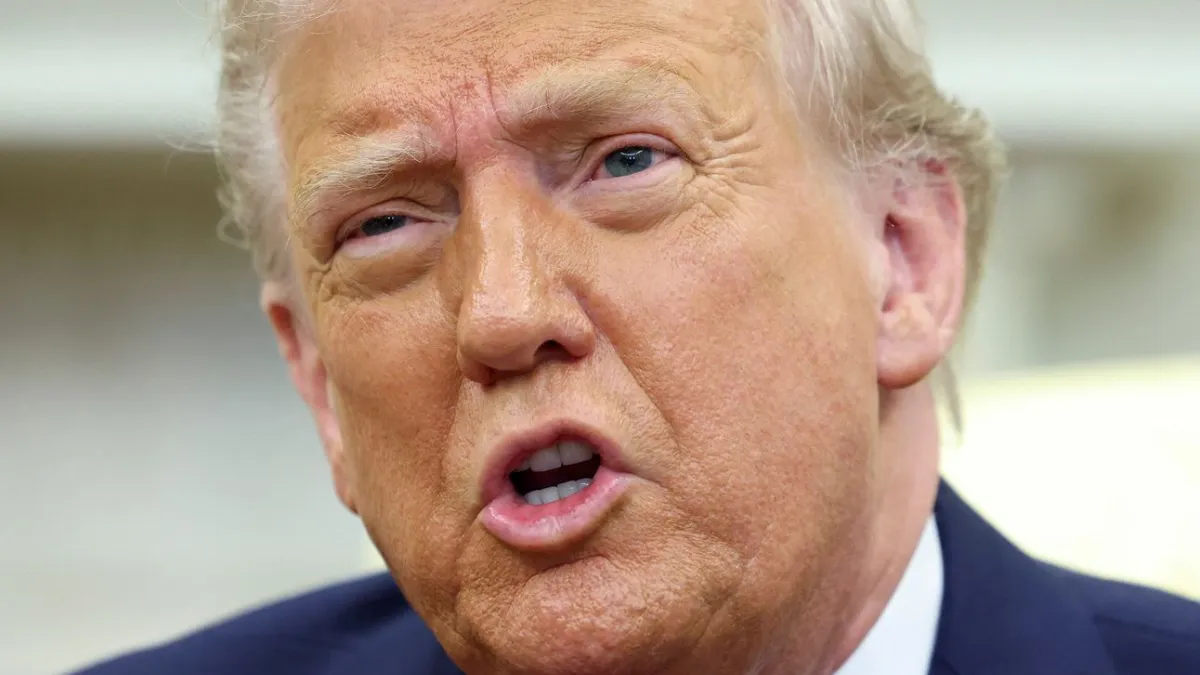
The Trump administration on Monday froze $2.2 billion in grant funding and $60 million in contracts to Harvard University hours after the school refused to comply with its demands for policy changes. President Donald Trump followed up Tuesday by threatening the university’s tax exemption. In a post on social media, he wrote: “Perhaps Harvard should lose its Tax Exempt Status and be Taxed as a Political Entity if it keeps pushing political, ideological, and terrorist inspired/supporting ‘Sickness?’ Remember, Tax Exempt Status is totally contingent on acting in the PUBLIC INTEREST!
White House Press Secretary Karoline Leavitt said Tuesday that Trump also wants the university to apologize for the “egregious antisemitism” that took place on its campus during protests against Israel’s war in Gaza.
How we got here: The Trump administration has threatened to cut millions or billions of dollars in federal funding for a series of schools unless those institutions agreed to policy changes. Harvard appears to be the first major university to reject the administration’s demands. Those demands, laid out in a letter sent Friday, included:
* Governance and leadership reforms;
* Merit-based hiring and admissions policies and the elimination of diversity, equity and inclusion programs;
* An external audit of the student body, faculty, staff, leadership and all departments for “viewpoint diversity”;
* Reform of programs with “egregious” records of antisemitism or other bias;
* A ban on masks worn at campus protests and reforms to student discipline policies;
* Cooperation with immigration officials.
“Harvard has in recent years failed to live up to both the intellectual and civil rights conditions that justify federal investment,” Trump administration officials wrote in a letter Friday in which they laid out their demands for changes.
Harvard told the administration Monday that it would not accept the proposed agreement. Lawyers for the school said it had already made, and will continue to make, changes to combat bias and promote civil discourse. They argued that the administration is ignoring those changes, violating the First Amendment and the university’s statutory rights and undercutting important research and innovation, including work at independently operated hospitals.
“The university will not surrender its independence or relinquish its constitutional rights,” attorneys William Burck and Robert Hur wrote. “Neither Harvard nor any other private university can allow itself to be taken over by the federal government.” Both of those lawyers have strong conservative ties.
In a statement explaining the university’s stance, Harvard President Alan Garber said that the administration was pushing beyond the legal limits on the federal government’s power. “Although some of the demands outlined by the government are aimed at combating antisemitism, the majority represent direct governmental regulation of the ‘intellectual conditions’ at Harvard,” he wrote. “The University will not surrender its independence or relinquish its constitutional rights. … No government—regardless of which party is in power—should dictate what private universities can teach, whom they can admit and hire, and which areas of study and inquiry they can pursue.”
The administration’s joint task force to combat antisemitism responded to Harvard’s decision by saying that harassment of Jewish students is “intolerable” and disruption of learning on campuses is unacceptable. It added that it is time for universities to commit to change if they want to continue receiving taxpayer funding: “Harvard’s statement today reinforces the troubling entitlement mindset that is endemic in our nation's most prestigious universities and colleges – that federal investment does not come with the responsibility to uphold civil rights laws.”